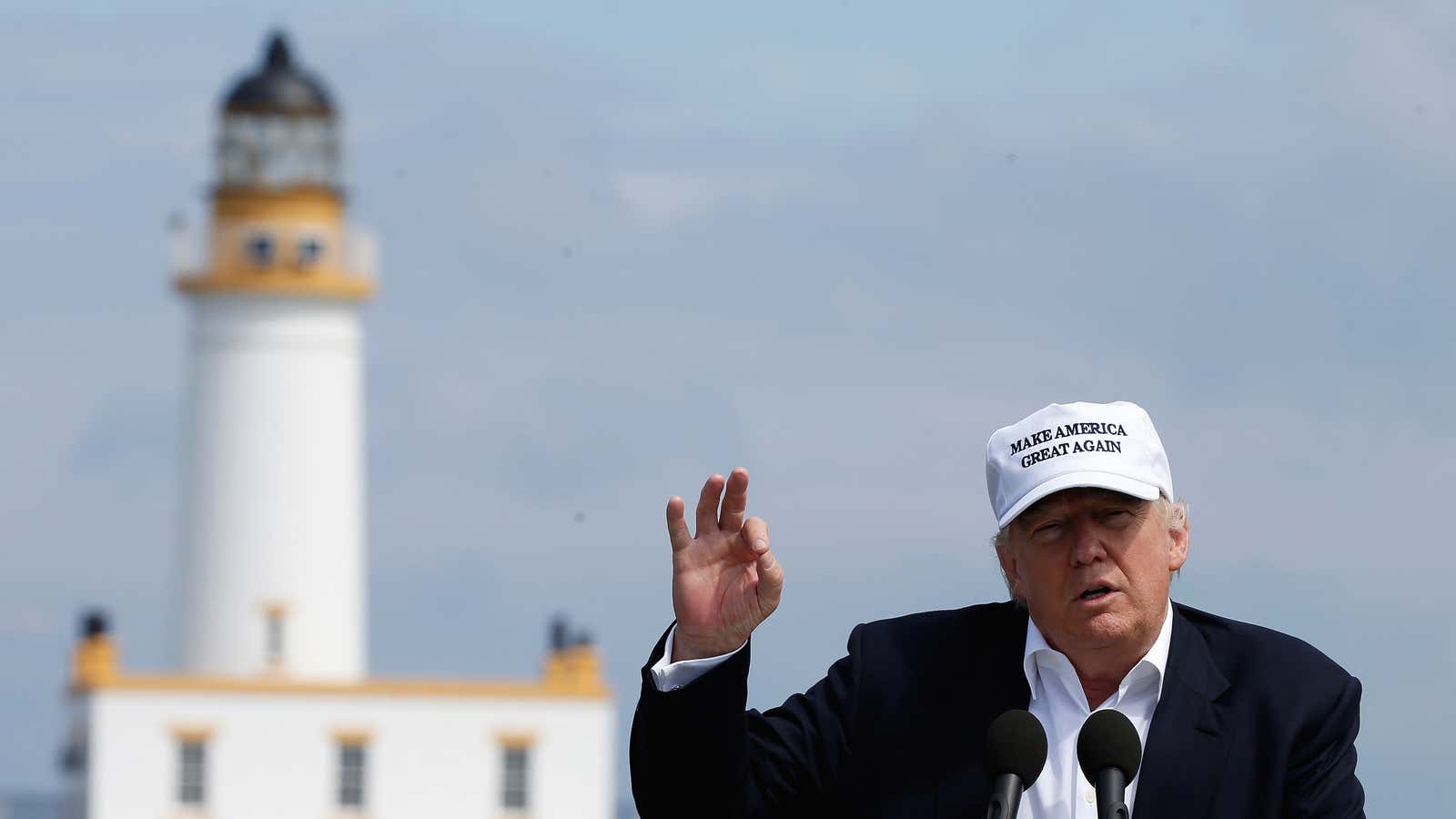It appears that perhaps a substantial number of Leave voters did not fully understand what it was they were voting for. And this is an ominous sign for American voters looking ahead to their Nov. 2016 general election.
Following Britain’s 52% to 48% decision to leave the European Union on Thursday (June 23), BBC journalist Victoria Derbyshire convened a group of voters in Manchester who cast ballots for a Brexit.
One of them, a man named Adam, is harboring some rather immediate regrets.
“I’m a bit shocked to be honest,” he said. “I’m shocked that we actually have voted to leave, I didn’t think that was going to happen.”
Adam told Derbyshire that he didn’t think his vote would ultimately matter. “I thought we were just going to remain,” he explained, “and the David Cameron resignation has blown me away to be honest.”
When Derbyshire asked him if the results had him concerned for the country’s future, he replied, “I think the period of uncertainty that we’re going to have for the next couple of months, that’s just been magnified now. So yeah, quite worried.”
Adam is not alone, apparently. Google is reporting a sharp uptick in searches relating to not just the implications of Britain leaving the EU, but the basic functions of the body all together:
With presumptive major-party nominees Donald Trump and Hillary Clinton, the United States faces a similarly stark choice as EU referendum voters. Indeed, the parallels between the Leave campaign and Donald Trump’s “Make America Great Again” movement are clear—both are built on a bedrock of white, working-class angst; anti-immigrant paranoia, economic protectionism, and queasy ultranationalism.
Clinton is leading Trump in polls nationwide. She has built a coalition of key demographics—women, ethnic minorities, and the college-educated—that make up a pretty strong firewall against a Trump victory. But then again, it appears many Britons couldn’t conceive of a Brexit in the same way many Americans can’t conceive of a Trump presidency. Yet here we are, a day after the referendum, with Britain on its way out of the EU and David Cameron on his way out of office.
Political analysts say turnout for the Remain campaign was lower than expected. This, in combination with the notion that perhaps large numbers of Leave voters did not cast their ballots seriously has precipitated the current situation. And a parallel recipe has the potential to bring about a Trump victory in November.
Now, of course Donald Trump landed in Britain just after Brexit vote. The man is medically incapable of not making a major news event in some way about himself.
“You know I said this would happen. I think it is a great thing. We will see but I think it will be a great thing. Basically, they took their country back,” he said in a speech delivered at Turnberry, his Scottish golfing resort. “[Britons] are angry over borders, they are angry over people coming into the country and taking over and nobody even noticing. They are angry about many, many things.”
“Essentially the same thing is happening in the United States,” he added. And it is here, unfortunately, that Trump is perhaps right.
So take note, America. Every vote counts. The time to Google the implications of your ballot-box decisions is not after voting day. Let’s minimize the number of Gob Bluth moments on November 9.
